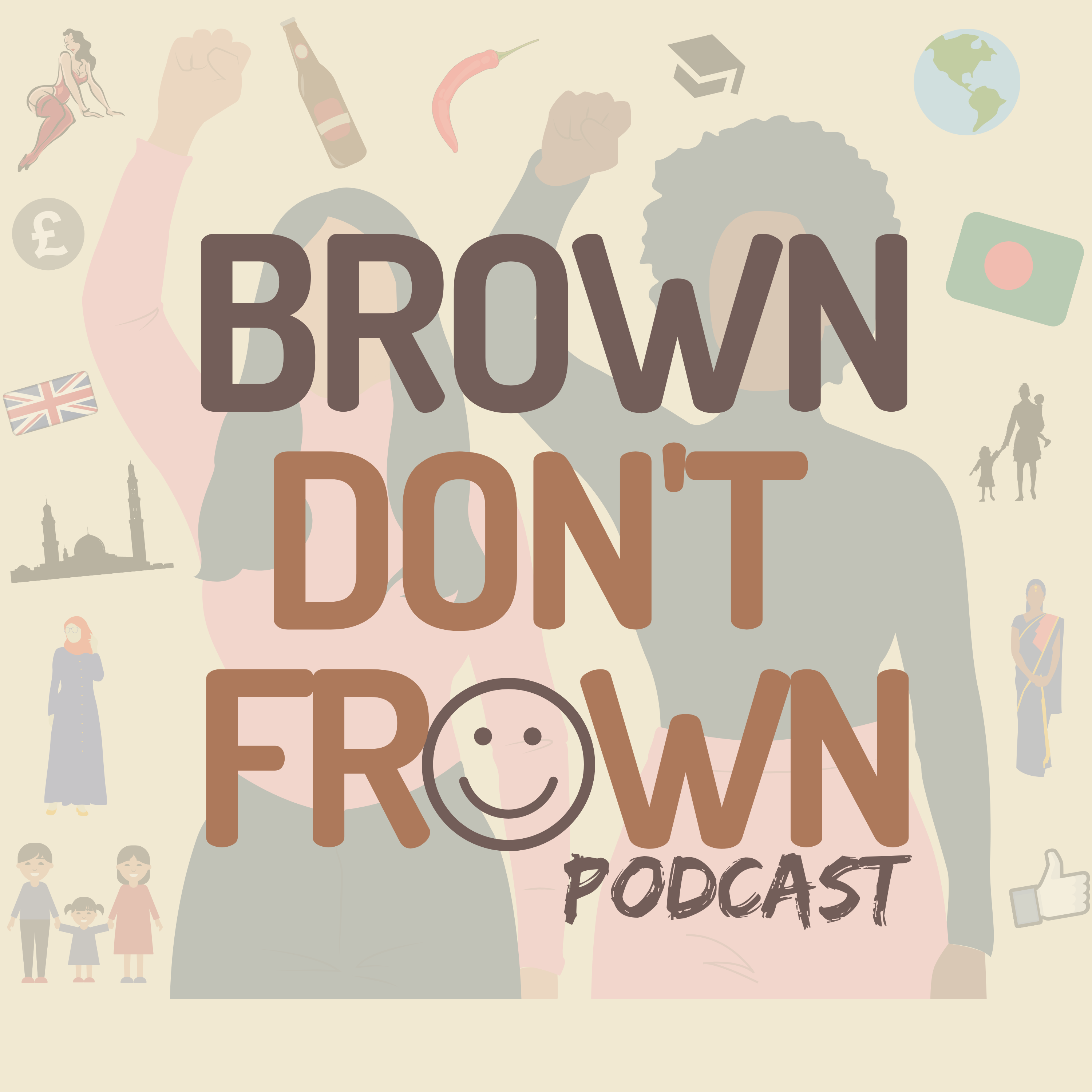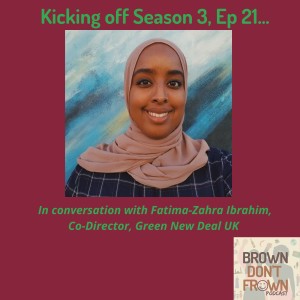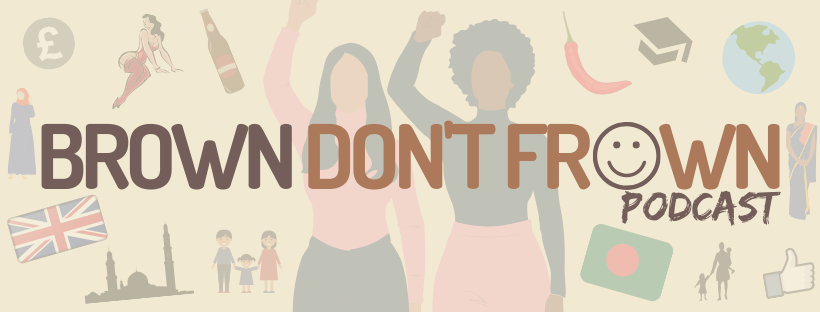
Brown Don't Frown was borne out of a personal journey with womanhood. As a British Bangladeshi, navigating mainstream Feminism often felt exclusionary to me because it didn’t seem to value the experiences or views which shaped my grandmother’s, aunts’, mother’s or friends’ lives. Through this podcast, we seek to build a more inclusive discourse, which breaks down presumptions about different cultures, and shines a positive light on the stories of underrepresented women. Featuring new guest(s) from different walks of life in each episode, Brown Don’t Frown seeks to engage ordinary women and facilitate openness towards entirely new perspectives. It hopes to spark honest and meaningful conversations about intersectional feminist themes in contemporary society with the acknowledgement that our views are shaped by our cultural, racial, religious, social and political experiences. Whether it's discussing society's preconceptions about the Hijab with a British-born Jamaican Muslim woman or examining the impact of gendered expectations on our ability to grieve on our own terms, we hope listeners finish each episode feeling more rounded than they did before. Follow us on: Instagram: https://www.instagram.com/browndontfrownpodcast/ Twitter: https://twitter.com/bdfpodcast?lang=en Facebook: https://www.facebook.com/browndontfrownpodcast LinkedIn: https://www.linkedin.com/company/browndontfrownpodcast
Episodes

Sunday Sep 27, 2020
Season 3: Ep 21 - Climate Change: an inconvenient reality
Sunday Sep 27, 2020
Sunday Sep 27, 2020
We begin Season 3 with Climate Change Activist and Co-Executive Director of Green New Deal UK, Fatima-Zahra Ibrahim. No previous war or recession has resulted in such a rapid decline in emissions as we’ve seen during COVID-19. We therefore ask: is it a real catalyst for addressing climate change?
We explore Bangladesh as a case study for environmental migration, namely how Mongla, a port town on its south coast is an attractive alternative to an overcrowded and environmentally endangered Dhaka.
We talk about optics, the polarised public perception of Extinction Rebellion, and how impactful activist campaigns are in engendering real change. We also consider how we can address the lack of representation and diversity in climate change activism. I invite Fatima to talk more about Green New Deal UK, and whether a Green New Deal is indeed compatible with the dominant political and economic system of our time: Capitalism. We discuss how environmental policies can be embedded within strategies to address the pandemic-induced economic crisis and wider inequality.
Finally, we look at the steps we can take, on an individual scale, to be more climate conscious.

No comments yet. Be the first to say something!